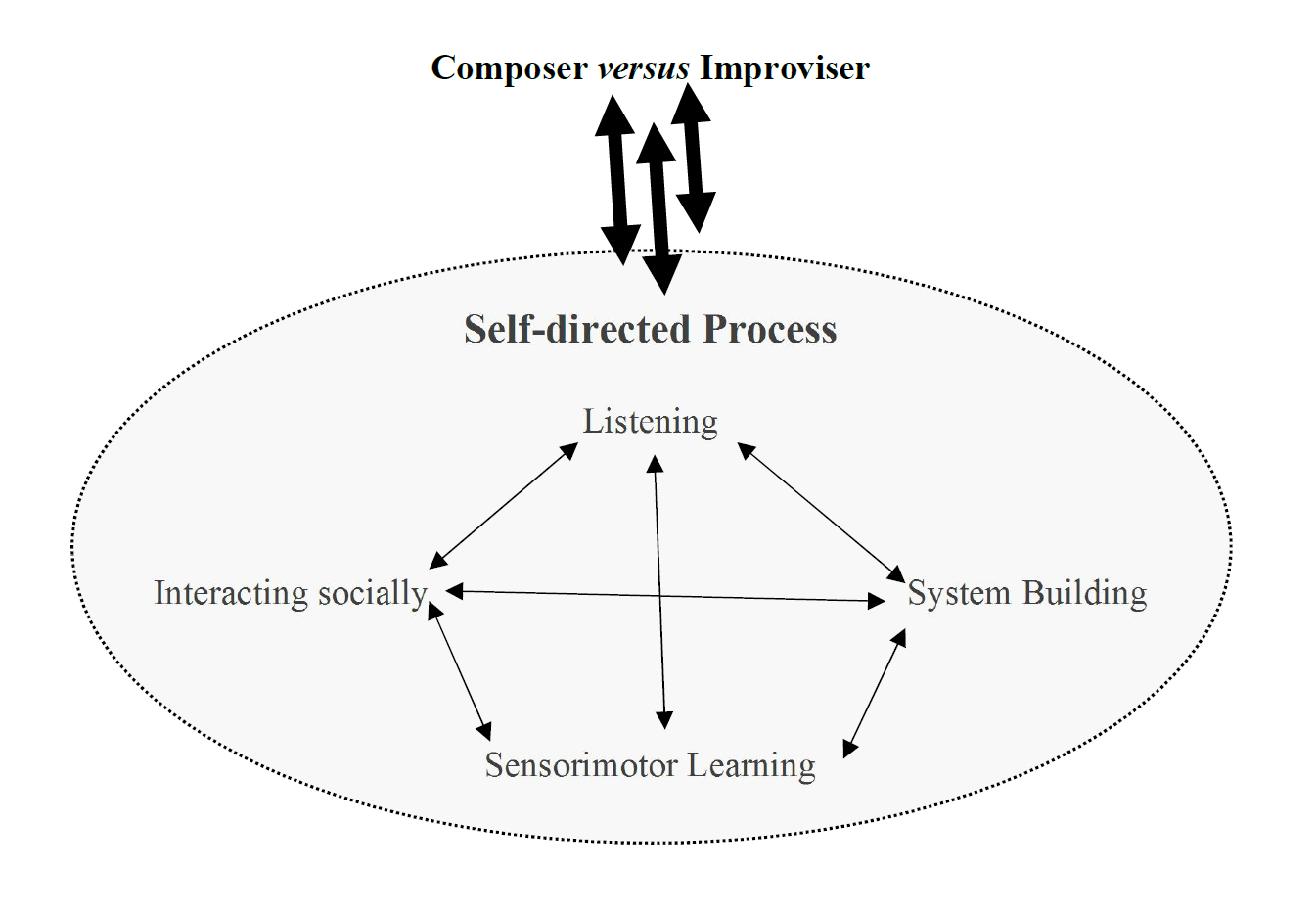Learning and Relearning to Improvise at the Piano
Improvisation have been part of my life for almost five decades by now– ever since my earliest childhood years. Yet, before starting my studies of MBP/Rhythmik1 at the University of Music and Performing Arts Vienna in Vienna (mdw) in 2019, I did not reflect much on how one learns to improvise. In January 2023 my deeply disappointing struggles to (re)learn musical improvisation at the piano forced me to examine own learning path as improviser. I felt that I needed to form a theoretical understanding in order to guide my further development in a field that was at the time, and remains, important to me in artistic, pedagogic, and artistic-pedagogic contexts. I wrote a dissertation on this in 2024, of which some aspects are presented here. The core of my dissertation consists of two autoethnographic pieces which can be downloaded here (1st piece) and here (2nd piece). These autobiographic writings present and develop the same six themes in different orders and from different viewpoints. Some of the experiences that I recreated correspond in important ways to actual experiences, while other experiences are fictional confluences of real experiences, or real experiences with fictional aspects.
The first piece, titled Vienna, recreates a seminal experience from my years of studying improvisation as part of the MBP/Rhythmik programme. In the second piece (Potchefstroom), I trace my learning and unlearning of improvisation in the form of a dialogue in which I am a silent interlocuter. My interpretation of my own learning process is summarised in the following simple diagram.

A framework grew from my research, and it describes my learning path:
my development as improviser shows the most growth when the composer and improviser are in multiple complementary relationships, and when self-directed development is based on the four aspects of (1) listening, (2) system building, (3) sensorimotor learning and (4) social interaction, four aspects which are all functioning optimally and in synergy.
I interpret the uniqueness of my experiences of relearning improvisation through the profound confusion, conflicts and tensions that my role, skills and attitudes as a skilled composer brought to my learning path, and to my socio-cultural situation, amongst other factors. I use my interpretation to continuously guide and challenge myself to shape effective learning paths for myself and others.
Footnotes
-
Music and Movement Education/Rhythmics – Musik- und Bewegungspädagogik/Rhythmik (I use the German abbreviation MBP/Rhythmik also when I write in English.) ↩